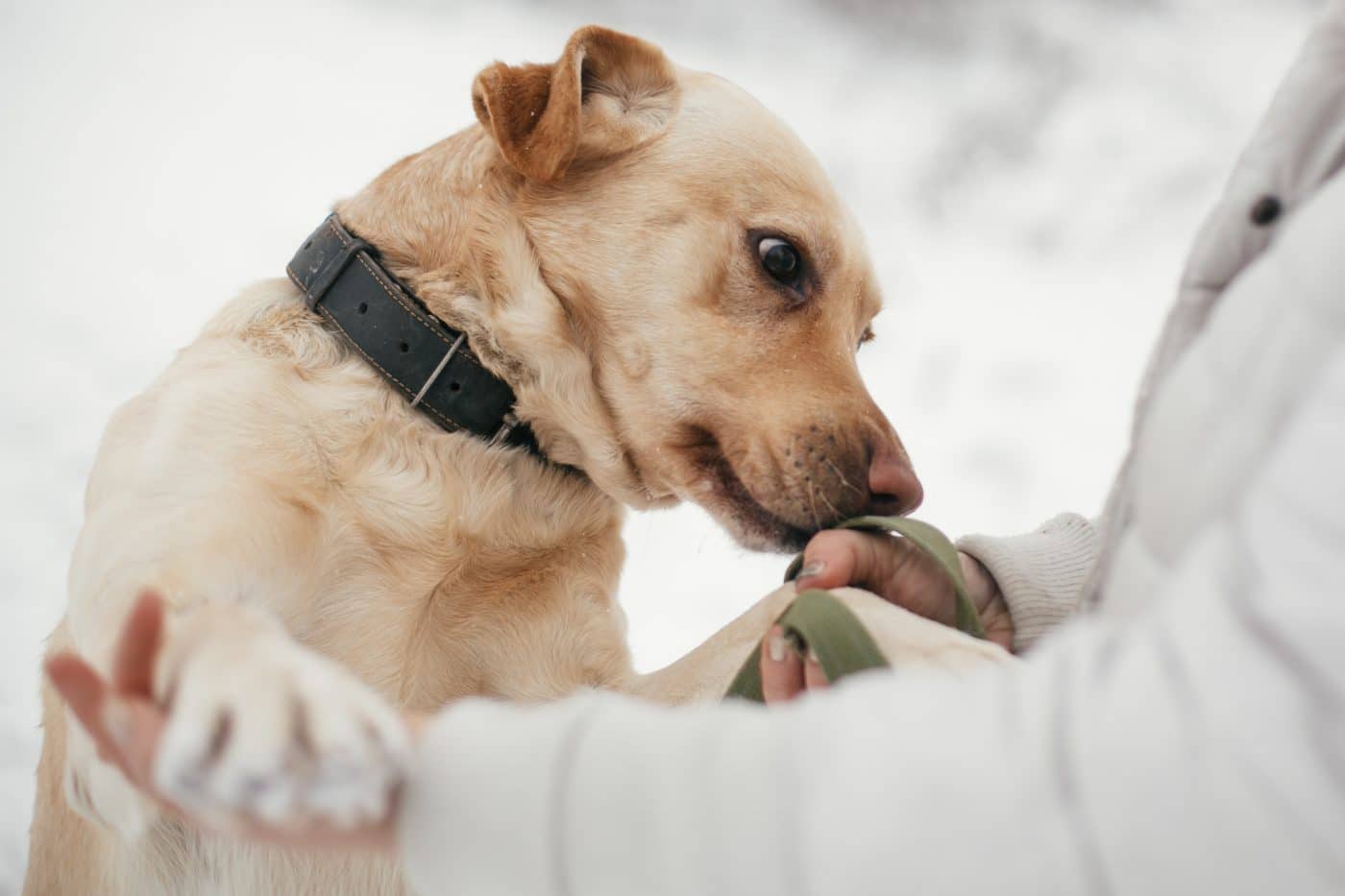 Shutterstock
Shutterstock
Dogs experience stress just like humans, but some anxiety triggers are so subtle that they often go unnoticed. While loud noises and vet visits are obvious stressors, small changes in your home or routine could make your pup uneasy. Shifts in scent, sound, or daily habits might affect them more than you realize. These surprising triggers could be causing your dog’s anxiety without you even knowing it. Understanding what unsettles them can help create a calmer, more comfortable environment for your furry friend.
A Sudden Change in Your Scent
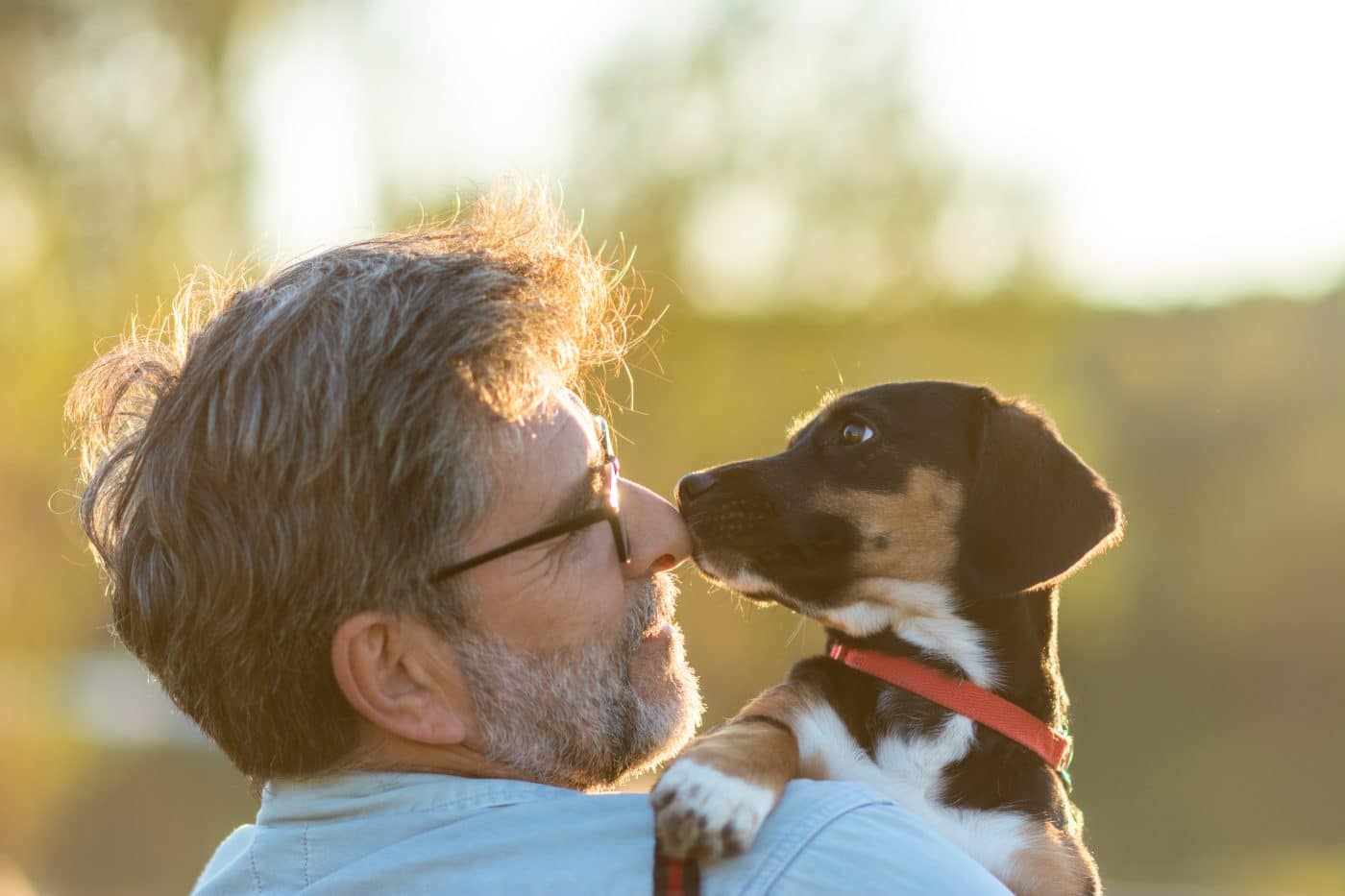 Shutterstock
Shutterstock
Dogs recognize their humans by scent more than anything else. If you switch your shampoo, laundry detergent, or cologne, your dog might suddenly act a little unsure around you. They rely on familiar smells for comfort, so an unexpected change can disorient them. If your pup gives you a confused look after you shower, they might just be trying to figure out what happened to their “real” human.
Moving Furniture Around
 Shutterstock
Shutterstock
You might love switching up your home décor, but your dog thrives on familiarity. When you rearrange furniture, your pup’s mental map of the house gets thrown off, making them feel anxious. They might hesitate before entering a room or avoid their usual nap spots altogether. To them, it’s like waking up in a completely different house overnight.
Loud TVs and Background Noise
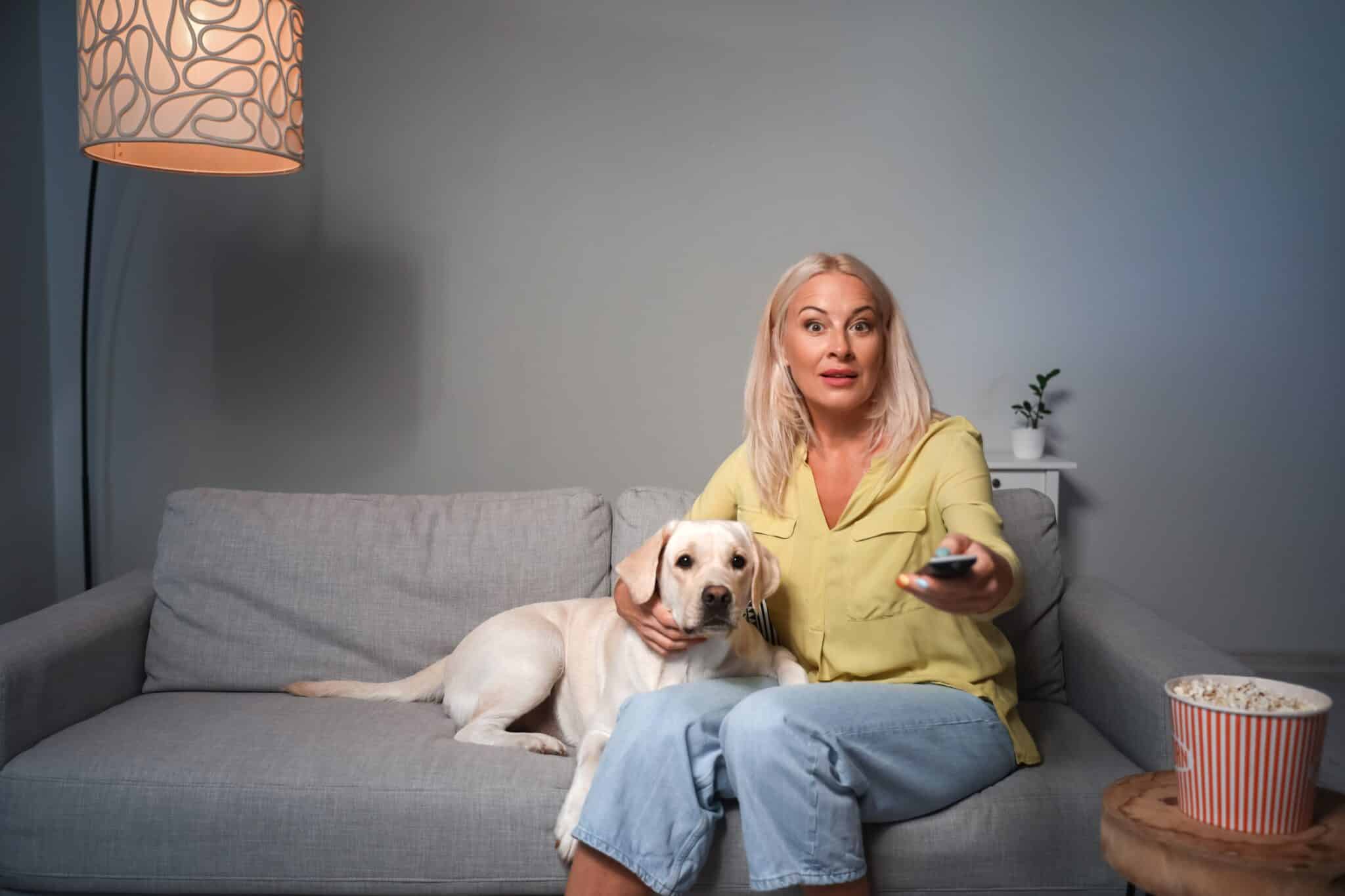 Shutterstock
Shutterstock
Your dog might not seem to care about what’s on TV, but certain sounds can put them on edge. Explosions, sirens, high-pitched voices, or intense action scenes can make them anxious. Even background music with deep bass or sharp tones might irritate their sensitive ears. If your dog leaves the room every time you start a particular show, it might not be because they’re uninterested—it could just be stressing them out.
Too Much Direct Eye Contact
 Shutterstock
Shutterstock
While loving eye contact can strengthen your bond, too much of it can make some dogs uncomfortable. In dog language, prolonged staring can signify dominance or even aggression. If your pup looks away, licks their lips, or starts fidgeting when you’re gazing at them, they might be feeling pressured. A friendly blink and glance away is often more reassuring to them than an intense stare.
Phone Calls and Video Chats
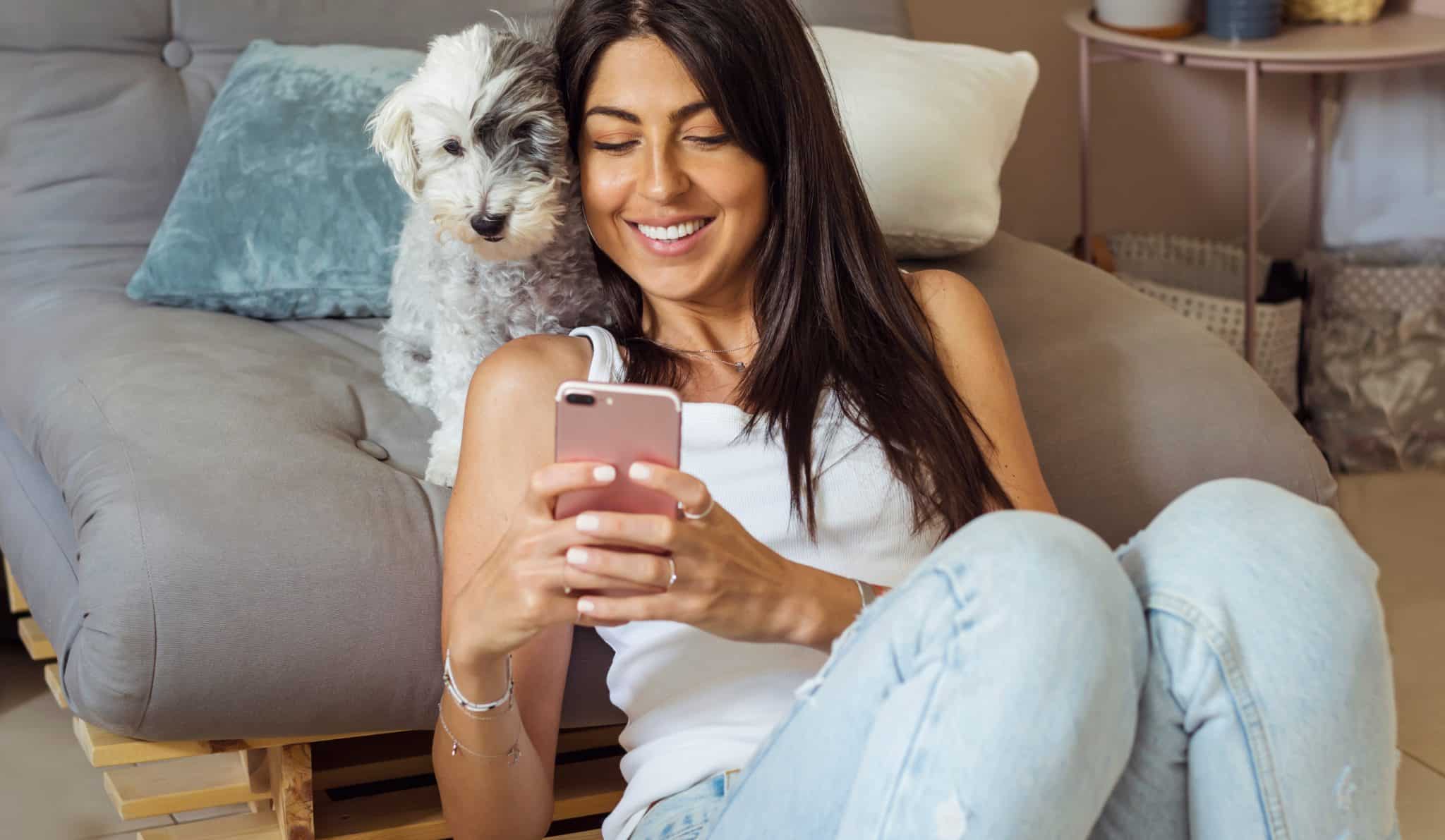 Shutterstock
Shutterstock
Ever notice your dog acting restless when you’re on the phone? They pick up on the fact that you’re engaged in a one-sided conversation and might not understand why. Video calls, emotional reactions to texts, or sudden laughter at memes can confuse them. Since they can’t see or hear the person on the other end, it might seem like you’re talking to yourself—and from their perspective, that’s a little weird.
A Cluttered or Messy Space
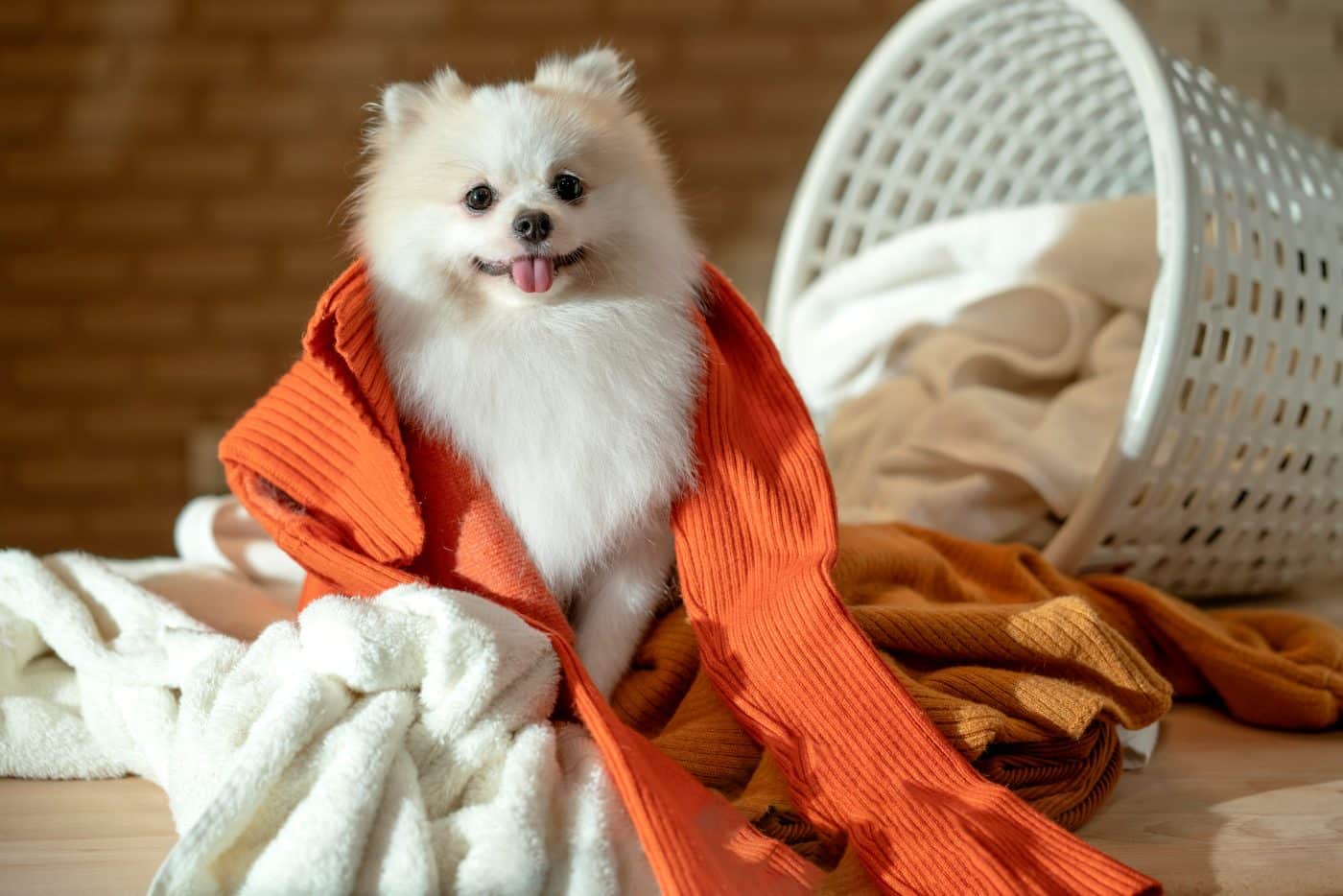 Shutterstock
Shutterstock
Dogs rely on structure and routine, and a chaotic environment can make them feel unsettled. If your home is suddenly filled with piles of clothes, stacks of boxes, or random objects, your dog might feel like their safe space is closing in on them. They navigate the world with their senses, and too much clutter can be overwhelming. If your pup seems unusually anxious, consider tidying up—it might help both of you relax.
Bright Lights at Night
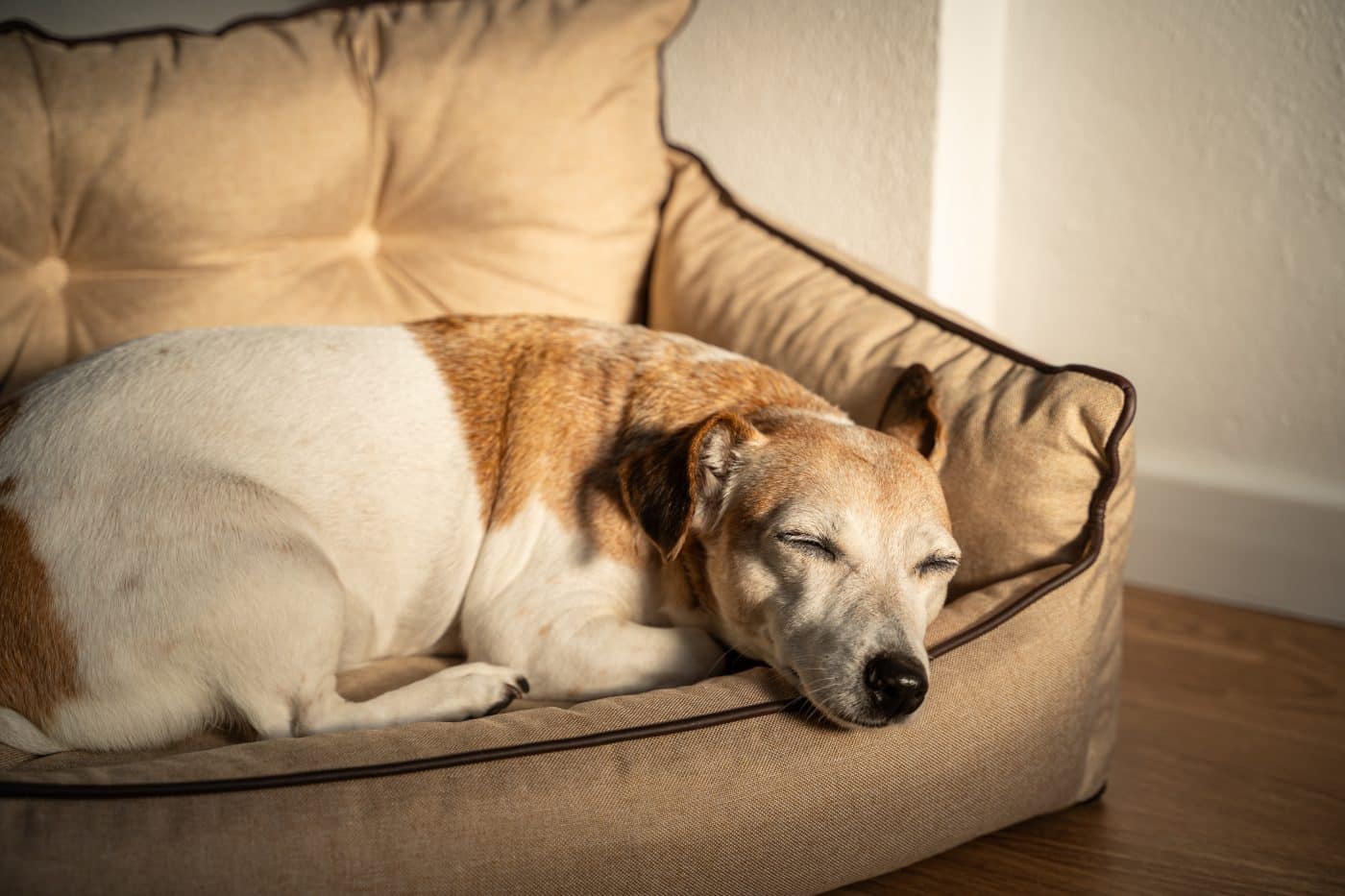 Shutterstock
Shutterstock
Some dogs prefer sleeping in the dark, and artificial lighting can disrupt their natural sleep cycle. Leaving bright overhead lights or screens on while they’re trying to rest might make it harder for them to settle down. Their instincts tell them that darkness means sleep, so they may feel restless if the house still looks like daytime. A dim nightlight or a dark, cozy space could help them feel more at ease.
Overpowering Scents
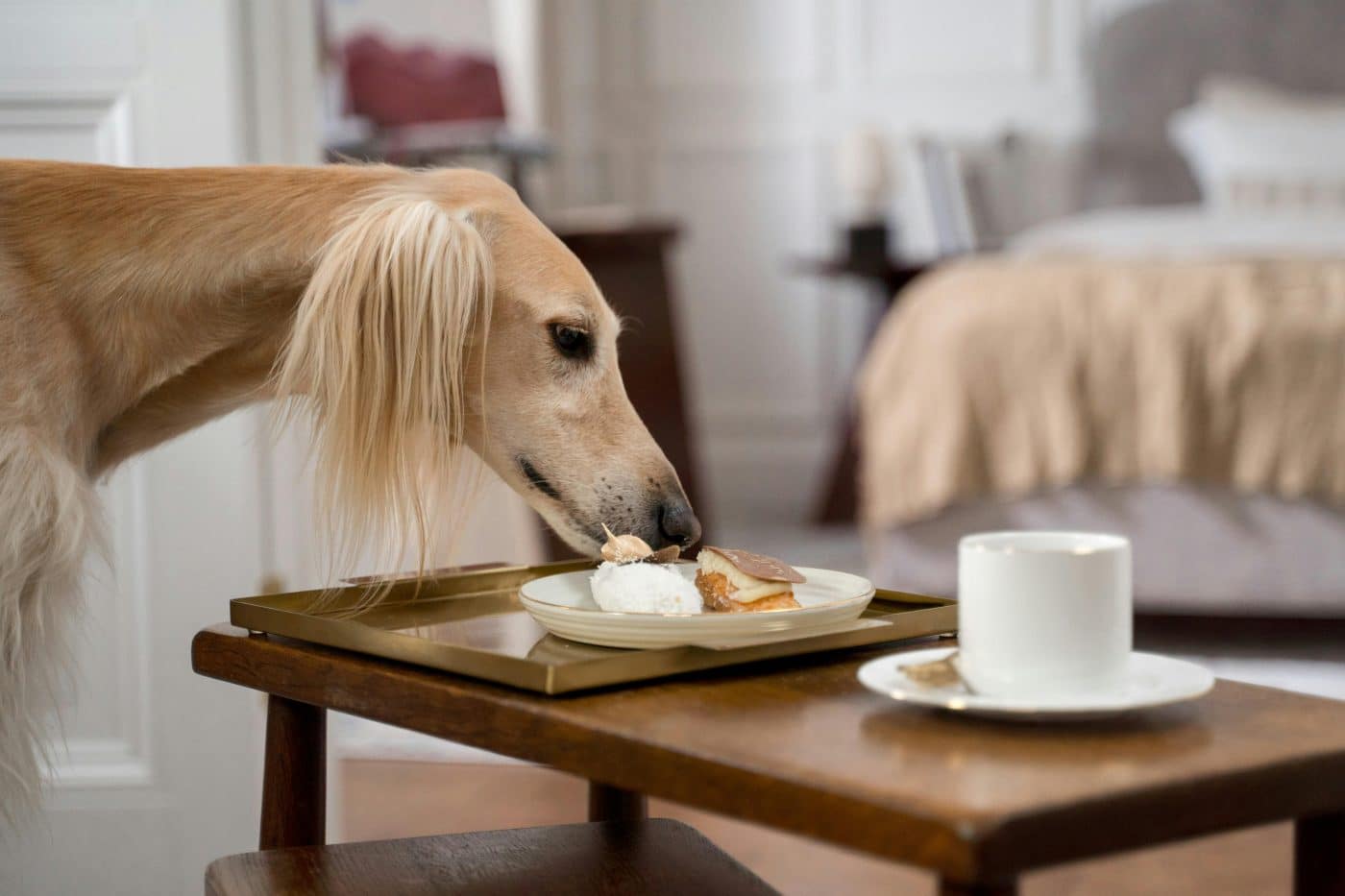 Shutterstock
Shutterstock
Your dog’s nose is millions of times more sensitive than yours, meaning strong fragrances can be overwhelming. Scented candles, essential oils, cleaning products, and air fresheners might smell great, but they could stress your pup. They might react to an irritating scent by avoiding certain rooms or sneeze more than usual. Try using mild, pet-safe products to keep their environment comfortable.
Disrupting Their Routine
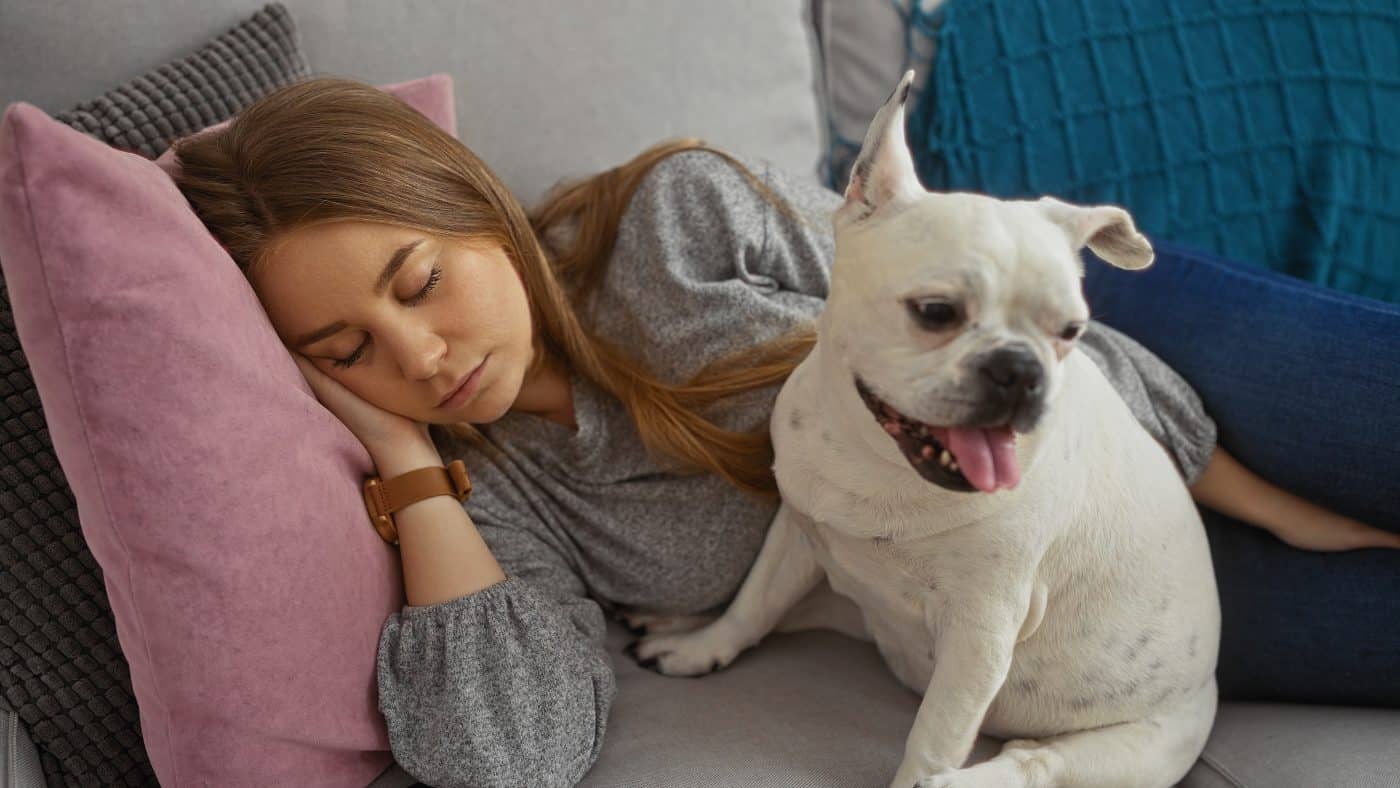 Shutterstock
Shutterstock
Dogs love consistency, and even small changes in their daily schedule can cause anxiety. If you suddenly start waking up later, feeding them at different times, or skipping regular walks, they might feel out of sync. Predictability helps them feel secure, so they can become restless or clingy when things suddenly change. Keeping a steady routine—even on lazy days—can help reduce their stress.
Wearing Hats, Sunglasses, or Costumes
 Shutterstock
Shutterstock
Dogs recognize faces, and covering yours up can confuse them. A hat, sunglasses, or even a hood can make you look unfamiliar, triggering a cautious or anxious reaction. Some dogs will bark, some will back away, and others might give you the world’s most judgmental stare. If your pup seems wary every time you change your look, give them a second to realize it’s still you.
Unusual Household Sounds
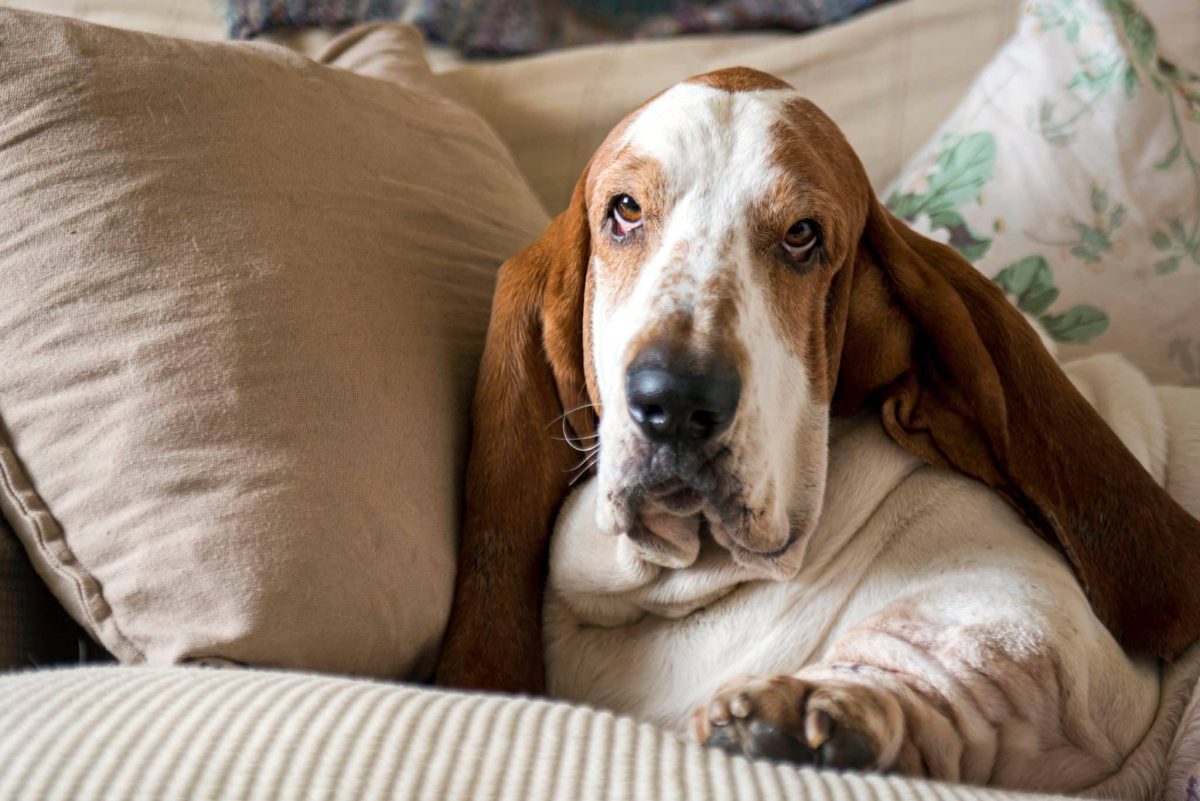 Shutterstock
Shutterstock
Dogs hear frequencies that humans can’t, meaning some everyday sounds might bother them. The hum of a new appliance, the beep of a smoke detector, or even the buzz of a phone charger can be unsettling. If your dog avoids certain areas of the house or reacts to a noise you barely notice, their ears are probably picking up something annoying. Identifying and eliminating the sound can make a big difference.
Unfamiliar Visitors
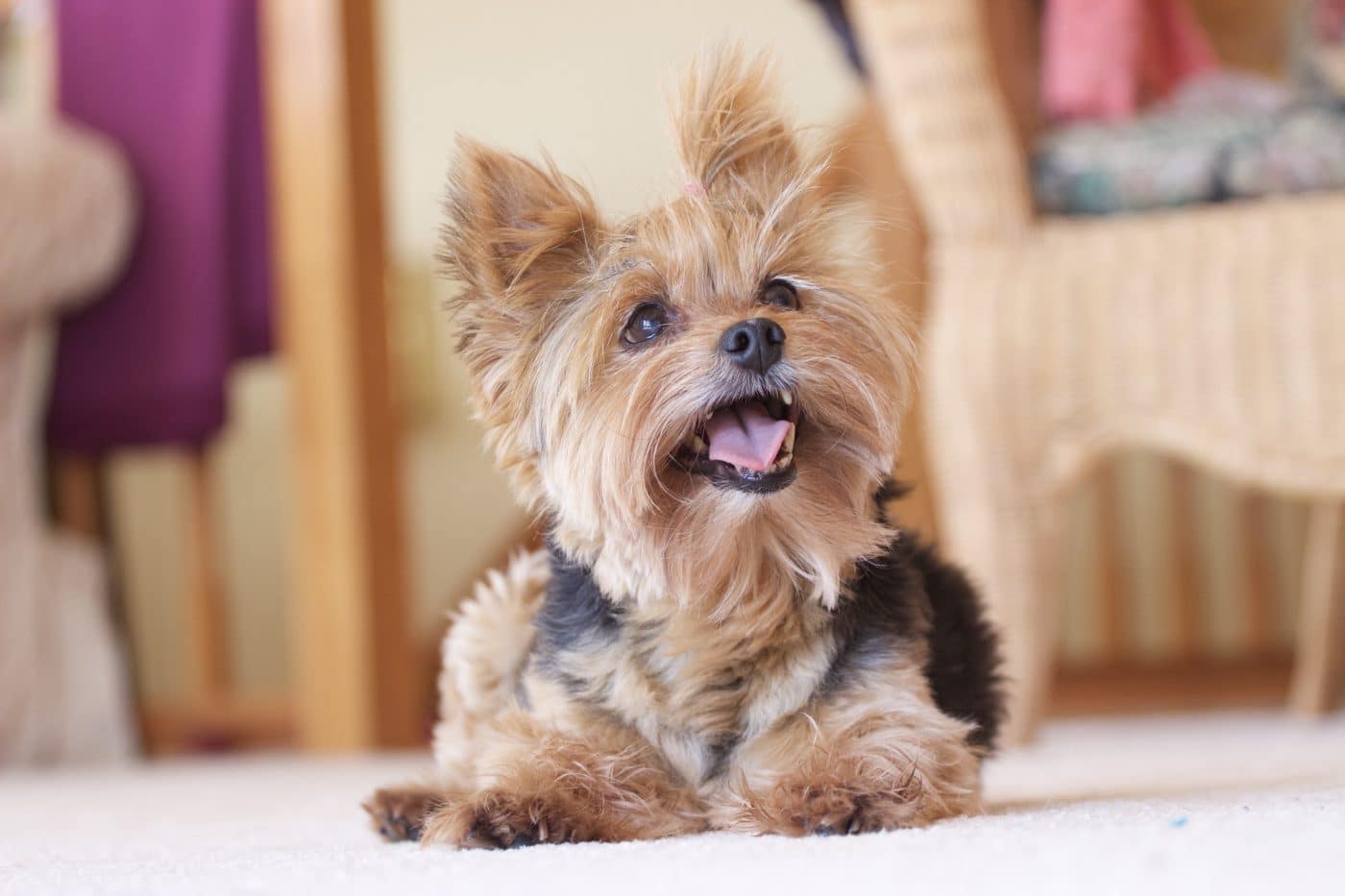 Shutterstock
Shutterstock
New guests can be exciting for some dogs but overwhelming for others. Strangers bring unfamiliar scents, different energy levels, and unpredictable movements, which can be unsettling. If your dog hides, paces, or seems overly cautious when people visit, they might just need time to adjust. Letting them approach on their own terms (and ensuring visitors respect their space) can help ease their nerves.
Weather Changes and Storms
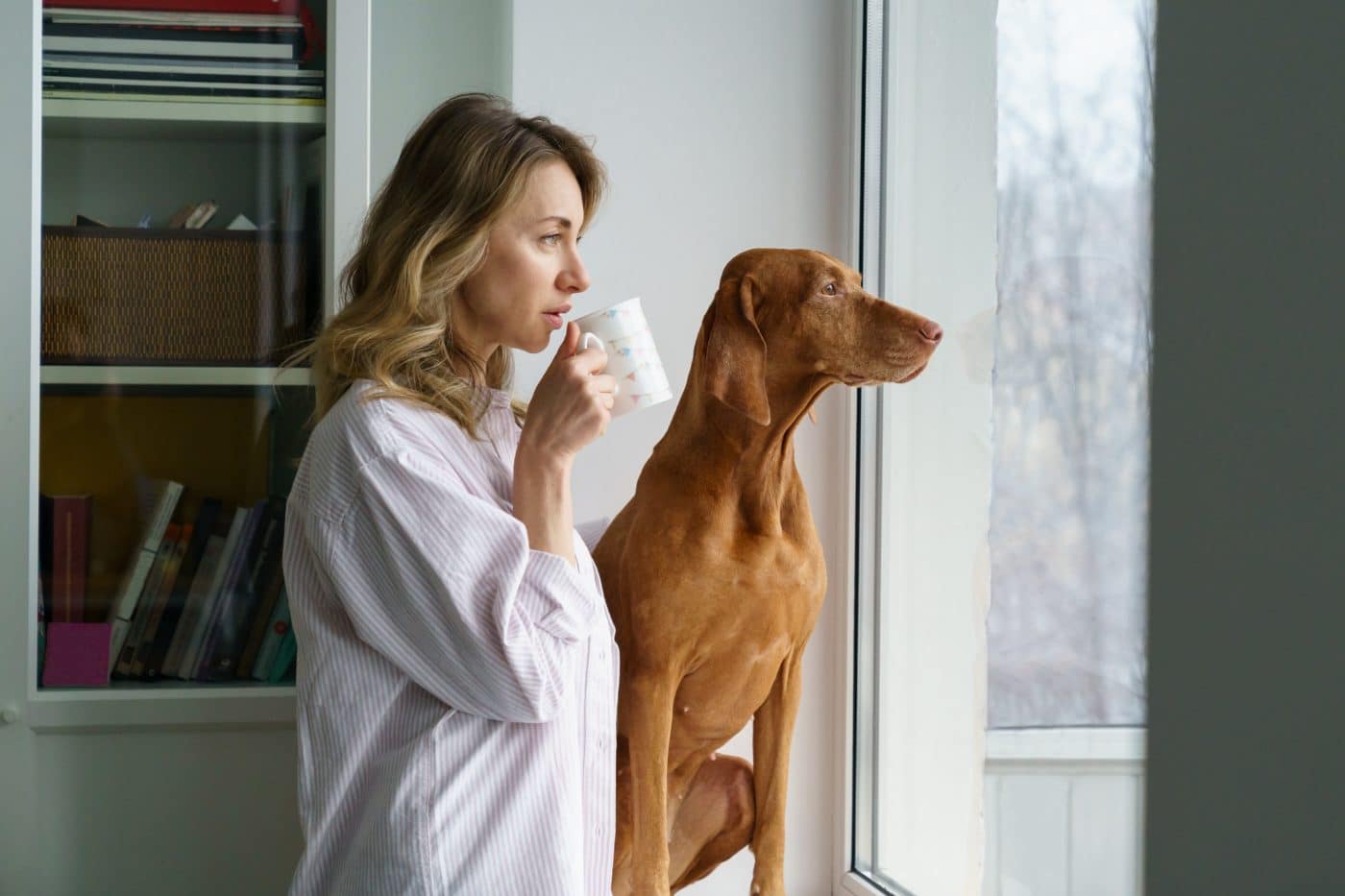 Shutterstock
Shutterstock
Dogs can sense shifts in atmospheric pressure, meaning they often know a storm is coming before you do. If your pup suddenly seems on edge, panting, or pacing for no reason, bad weather might be coming. Thunder, strong winds, and heavy rain can be scary for them, but even the unseen pressure changes can cause unease. Keeping them in a quiet, cozy space can help them feel safe when the weather turns.
Grabbing Your Keys or Packing a Bag
 Shutterstock
Shutterstock
Dogs are creatures of habit and quickly associate certain actions with you leaving. They might panic instantly if you grab your keys, put on your shoes, or start packing a bag. Some dogs become clingy, while others sulk in anticipation of being left alone. If your dog reacts every time you make a move toward the door, they’ve figured out exactly what’s coming next.
Sudden Blasts of Air
 MidJourney
MidJourney
Sudden bursts of air can startle some dogs, whether from an AC vent, a ceiling fan, or an open window. Because they rely on scent to understand their surroundings, a strong wind that carries away familiar smells can make them uneasy. Some dogs will move away from vents, while others might stare at them suspiciously, as if they’re under attack. If your dog seems weirdly bothered by airflow, it might just be their natural sensitivity kicking in.
The Hidden Stressors Upsetting Your Dog
 MidJourney
MidJourney
Dogs don’t stress out for no reason—something in their environment usually triggers their anxiety. Their unease often comes from a deep attachment to their surroundings and the people they love. Even small changes, like new scents, loud noises, or shifts in routine, can make them feel unsettled. Paying attention to their reactions and making small adjustments can help them feel more secure. At the end of the day, they just want to feel safe, loved, and reassured that their world isn’t spinning out of control.





